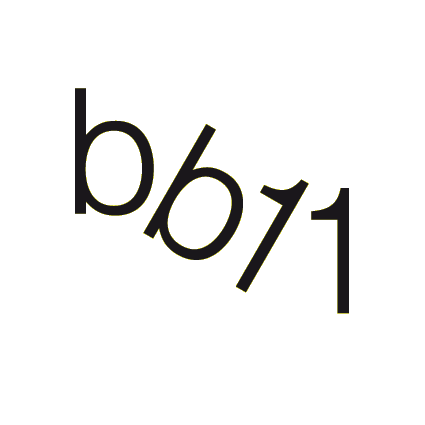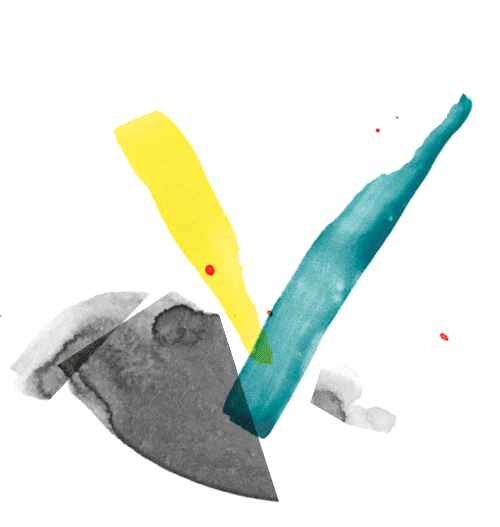

Sign up for our newsletters. You can change the settings or unsubscribe at any time.
Thank you for your subscription. We have sent you an e-mail with a confirmation link.


exp. 1
exp. 2
exp. 3

Noor Abuarafeh
Venue: Gropius Bau
Noor Abuarafeh
Born 1986 in Jerusalem, PS – lives and works in Cairo, EG, and Jerusalem
Palestinian artist Noor Abuarafeh’s video Am I the ageless object at the museum? (2018) begins with a visit to the zoo. As the camera pans across several animal enclosures, the narrator muses about animals big and small, and their similarity to people. The brief journey from insect to whale is also a digression into the chronopolitical dimension of archival institutions, whose objects are said to be ageless, “not of our time.” Once assembled inside the museum, they bring into being a plethora of other abstract entities: state, taxonomy, history and prehistory, ethnography, national heritage.
The zoo, a collection of animals, also conforms to the institutional congruity of the museum form, which is ultimately what sustains the asymmetry between collector and collected, the one who sees and those who are seen, devivifying the animal and sucking the life out of the living. In a zoo, all animals are taxidermy mounts, pinned butterflies, comatose or frantic shells of their former wild selves. But there is another hidden dimension to these rugged, unfortunate creatures. They are beasts burdened with our hopes and anxieties as emblems, symbols, or tokens. The whale in particular is a symbol of statecraft, the Leviathan, a mythical beast made to carry the weight of the social contract and the body politic. As the film draws to a close, the narrator imagines the process of becoming a whale: basking in the sunlight as his back begins to attract a multitude of winged creatures. He feels the pricks as they feast on his flesh and wonders whether it is his or the whale’s body that is being eaten.
Much has been written about the relation between collections, nation-building, and colonial legacies. But Abuarafeh shows us that if the museum worlds, it can also unworld. Shadowing her musings on the nature of collections is the perpetually unrealized, or unrealizable project of the Palestinian Museum—the institution of a state, undone.
Ana Teixeira Pinto
St Sara Kali George
Delaine Le Bas
Soundscape
Umbilical Cord Amulet
McCord Museum
Object
BLM KOREA ARTS
#BlackLivesMatter #BLMKoreaArts
Young-jun Tak
Statement
#fight4rojava
Graffiti
Undocumented Rumours and Disappearing Acts from Chile
María Berríos
Essay
Weaving Solidarity
Renata Cervetto and Duygu Örs
Q&A
By using this website you agree to the use of cookies in accordance with our data privacy policy.

Noor Abuarafeh
Venue: Gropius Bau
Noor Abuarafeh
Born 1986 in Jerusalem, PS – lives and works in Cairo, EG, and Jerusalem
Palestinian artist Noor Abuarafeh’s video Am I the ageless object at the museum? (2018) begins with a visit to the zoo. As the camera pans across several animal enclosures, the narrator muses about animals big and small, and their similarity to people. The brief journey from insect to whale is also a digression into the chronopolitical dimension of archival institutions, whose objects are said to be ageless, “not of our time.” Once assembled inside the museum, they bring into being a plethora of other abstract entities: state, taxonomy, history and prehistory, ethnography, national heritage.
The zoo, a collection of animals, also conforms to the institutional congruity of the museum form, which is ultimately what sustains the asymmetry between collector and collected, the one who sees and those who are seen, devivifying the animal and sucking the life out of the living. In a zoo, all animals are taxidermy mounts, pinned butterflies, comatose or frantic shells of their former wild selves. But there is another hidden dimension to these rugged, unfortunate creatures. They are beasts burdened with our hopes and anxieties as emblems, symbols, or tokens. The whale in particular is a symbol of statecraft, the Leviathan, a mythical beast made to carry the weight of the social contract and the body politic. As the film draws to a close, the narrator imagines the process of becoming a whale: basking in the sunlight as his back begins to attract a multitude of winged creatures. He feels the pricks as they feast on his flesh and wonders whether it is his or the whale’s body that is being eaten.
Much has been written about the relation between collections, nation-building, and colonial legacies. But Abuarafeh shows us that if the museum worlds, it can also unworld. Shadowing her musings on the nature of collections is the perpetually unrealized, or unrealizable project of the Palestinian Museum—the institution of a state, undone.
Ana Teixeira Pinto
A Moment of True Decolonization / Episode #6: Sinthujan Varatharajah. Constructing the Tamil Eelam State
The Funambulist / Sinthujan Varatharajah
Podcast
Memorial to the Sinti and Roma Victims of National Socialism
Dani Karavan
Memorial
Hatred Among Us
Lisette Lagnado
Essay
THE MOBILIZATION
Nicolás Cuello
Text
Feminist Health Care Research Group
Web archive
A World Without Bones
Agustín Pérez Rubio
By using this website you agree to the use of cookies in accordance with our data privacy policy.

Noor Abuarafeh
Venue: Gropius Bau
Noor Abuarafeh
Born 1986 in Jerusalem, PS – lives and works in Cairo, EG, and Jerusalem
Palestinian artist Noor Abuarafeh’s video Am I the ageless object at the museum? (2018) begins with a visit to the zoo. As the camera pans across several animal enclosures, the narrator muses about animals big and small, and their similarity to people. The brief journey from insect to whale is also a digression into the chronopolitical dimension of archival institutions, whose objects are said to be ageless, “not of our time.” Once assembled inside the museum, they bring into being a plethora of other abstract entities: state, taxonomy, history and prehistory, ethnography, national heritage.
The zoo, a collection of animals, also conforms to the institutional congruity of the museum form, which is ultimately what sustains the asymmetry between collector and collected, the one who sees and those who are seen, devivifying the animal and sucking the life out of the living. In a zoo, all animals are taxidermy mounts, pinned butterflies, comatose or frantic shells of their former wild selves. But there is another hidden dimension to these rugged, unfortunate creatures. They are beasts burdened with our hopes and anxieties as emblems, symbols, or tokens. The whale in particular is a symbol of statecraft, the Leviathan, a mythical beast made to carry the weight of the social contract and the body politic. As the film draws to a close, the narrator imagines the process of becoming a whale: basking in the sunlight as his back begins to attract a multitude of winged creatures. He feels the pricks as they feast on his flesh and wonders whether it is his or the whale’s body that is being eaten.
Much has been written about the relation between collections, nation-building, and colonial legacies. But Abuarafeh shows us that if the museum worlds, it can also unworld. Shadowing her musings on the nature of collections is the perpetually unrealized, or unrealizable project of the Palestinian Museum—the institution of a state, undone.
Ana Teixeira Pinto
Struggle as Culture: The Museum of Solidarity, 1971–73
María Berríos
Essay
A World Without Bones
Agustín Pérez Rubio
Feminist Health Care Research Group
Web archive
„Klaus Eckschen: Hörspiel“
Die Remise
Hörspiel
Weaving Solidarity
Renata Cervetto and Duygu Örs
Q&A
I: Junto a las curadoras de la XI Berlin Biennale for Contemporary Art
Renata Cervetto, Lisette Lagnado
Conversation
By using this website you agree to the use of cookies in accordance with our data privacy policy.

Noor Abuarafeh
Venue: Gropius Bau
Noor Abuarafeh
Born 1986 in Jerusalem, PS – lives and works in Cairo, EG, and Jerusalem
Palestinian artist Noor Abuarafeh’s video Am I the ageless object at the museum? (2018) begins with a visit to the zoo. As the camera pans across several animal enclosures, the narrator muses about animals big and small, and their similarity to people. The brief journey from insect to whale is also a digression into the chronopolitical dimension of archival institutions, whose objects are said to be ageless, “not of our time.” Once assembled inside the museum, they bring into being a plethora of other abstract entities: state, taxonomy, history and prehistory, ethnography, national heritage.
The zoo, a collection of animals, also conforms to the institutional congruity of the museum form, which is ultimately what sustains the asymmetry between collector and collected, the one who sees and those who are seen, devivifying the animal and sucking the life out of the living. In a zoo, all animals are taxidermy mounts, pinned butterflies, comatose or frantic shells of their former wild selves. But there is another hidden dimension to these rugged, unfortunate creatures. They are beasts burdened with our hopes and anxieties as emblems, symbols, or tokens. The whale in particular is a symbol of statecraft, the Leviathan, a mythical beast made to carry the weight of the social contract and the body politic. As the film draws to a close, the narrator imagines the process of becoming a whale: basking in the sunlight as his back begins to attract a multitude of winged creatures. He feels the pricks as they feast on his flesh and wonders whether it is his or the whale’s body that is being eaten.
Much has been written about the relation between collections, nation-building, and colonial legacies. But Abuarafeh shows us that if the museum worlds, it can also unworld. Shadowing her musings on the nature of collections is the perpetually unrealized, or unrealizable project of the Palestinian Museum—the institution of a state, undone.
Ana Teixeira Pinto
IV: How Fear Can Dismantle a Body. Vis-a-Vis with two of four curators of the 11th Berlin Biennale
María Berríos, Lisette Lagnado
Conversation
El primer nueva corónica y buen gobierno
Felipe Guamán Poma de Ayala
Chronicle
#fight4rojava
Graffiti
Invitation to the Species: Cecilia Vicuña
Tamaas / Cecilia Vicuña
Podcast
Feminist Health Care Research Group
Web archive
Weaving Solidarity
Renata Cervetto and Duygu Örs
Q&A
By using this website you agree to the use of cookies in accordance with our data privacy policy.
By using this website you agree to the use of cookies in accordance with our data privacy policy.




